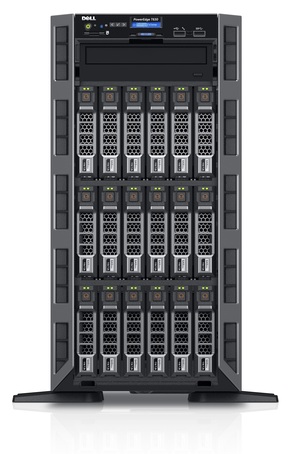
|
Dell is rejoiced to introduce the next, 13th generation of PowerEdge servers intended for a trouble-free start-up of applications and increased workloads. Currently, the series involves five models which are equipped with advanced drives, powerful processors and responsive RAM. Besides, the integration of innovative software and exclusive services stimulates operational efficiency and flexibility at any work scale, including data-greedy applications.
Dell PowerEdge series is represented by T630, R630, 630, R730, and R730xd models. All of them are powered by Intel Xeon E5-2600 v3 processors and boast the implementation of up-to-date data storage technologies. They provide for speed up of app load due to the data allocation close to the CPU. New integrated data storage technology enables quick access to information, array zoning by means of RAID enhancement, as well as robust optimization of data allocation due to hybrid configurations within computing nodes with piggybacking facilities.
Dell PowerEdge T630 server is equipped with DDR4 RAM, offering space for 32 drives of 2.5-inch standard or 18 drives of 3.5-inch standard. PowerEdge R630, a two-socket, 1U rack server, comes with 24 bays for 1.8-inch flash SSDs or 10 2.5-inch HDDs. It is an ideal choice for large-scale analytical programs, like SQL and Oracle.
Dell PowerEdge R730 is a two-socket, 2U rack server boasting 24 DIMM slots for DDR4 memory modules. This model offers large memory footprint and processing cycles/threads to provide for unprecedented efficiency needful for data centers, cloud servers and virtual machines. PowerEdge R730xd accommodates 1.8-inch SATA SSDs, 12 GB SAS SSDs, NVMe Express Flash PCI Express drives; their combination ensures optional Dell Fluid Cache acceleration technology.
The 13th generation of PowerEdge servers boasts an optimized functional that guarantees a higher level of automation. For instance, system administrators are able to monitor data center functioning from any mobile device; they might also take benefit from computer-assisted control options with zero administration that presumes profile settings adjustment and firmware updates from a central repository. |

